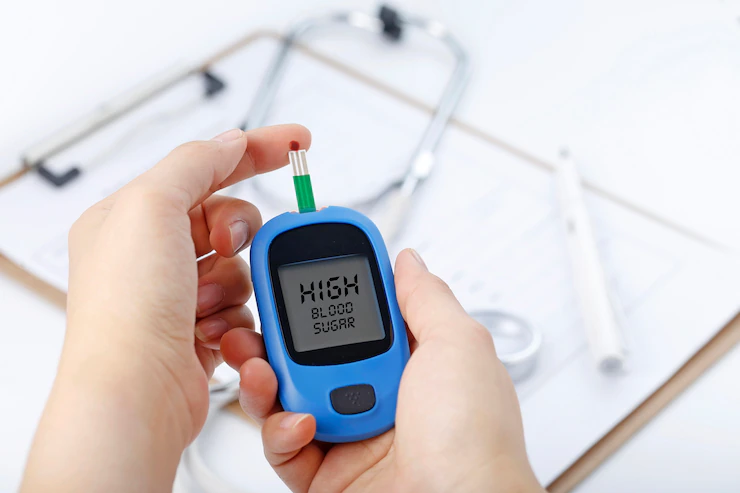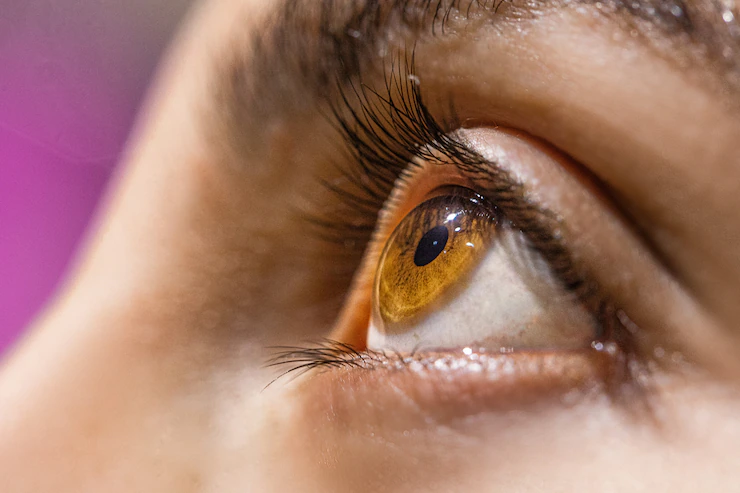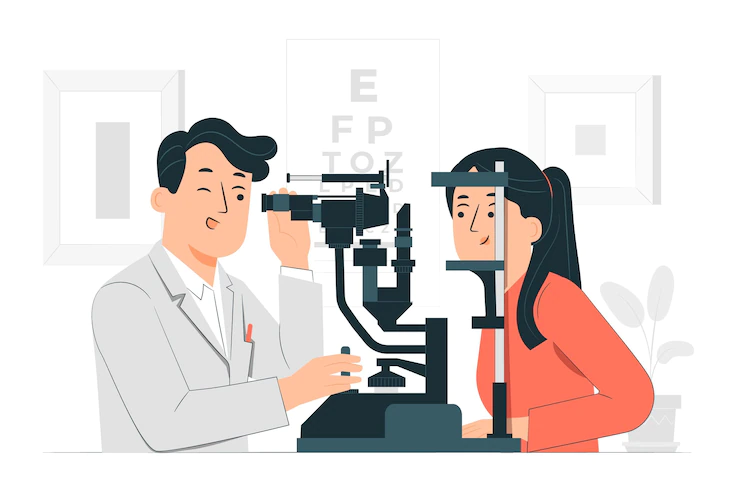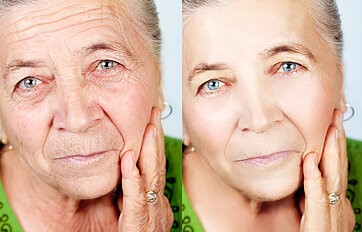What are the Eye diseases related to Diabetes

Diabetes can hurt your eyesight, leading to vision impairment and even blindness. Fortunately, you can reduce the risk of eye diseases due to diabetes by managing your diabetes & getting regular eye checks.
Diabetes can cause serious damage to your eyes, such as impaired vision or blindness, if not properly managed. To prevent diabetic eye disease from worsening, it’s important to monitor and control the condition through regular check-ups and care.
Diabetics are prone to various eye diseases such as diabetic retinopathy, macular edema, cataracts, and glaucoma. However, if detected early and treated effectively, it is possible to save your sight from irreparable damage.
Table of contents
Eye diseases related to diabetes
People with diabetes should make sure their glucose levels are regulated, as excessive amounts of it can lead to serious vision impairment. Keeping your blood sugar within a safe range is essential for maintaining good eye health.

Although it is unlikely, short-term eye diseases may occur due to diabetes. It is usually temporary and resolves itself over a few days or weeks when someone changes their diabetes care plan or medications. High glucose levels can cause fluid buildup in the eye tissues responsible for focusing, which can lead to blurry vision. Luckily, this situation can be reversed if the glucose levels are brought back to normal.
Keeping your blood glucose at elevated levels for an extended period can have dire consequences. The tiny blood vessels in the back of your eyes are especially vulnerable to damage and can easily be affected even during prediabetes when your glucose levels aren’t quite high enough to be classified as diabetes. Damage to the blood vessels may lead to fluid leakage and swelling. Weak and new vessels may consequently appear, which can cause bleeding within the eye’s inner chamber, scarring, or excessively high pressure in the eye.
For those with diabetes, four eye diseases can endanger the health of their vision. These medical issues start with blood vessel problems and must monitor it closely.
Diabetic Retinopathy
Diabetic retinopathy is the most common cause of eye diseases due to diabetes among working adults. It happens when elevated blood sugar levels inflict damage on the small blood vessels in the retina, which is located at the back of your eyes. In those with diabetic retinopathy, the blood vessels can often get damaged and become swollen or impede the flow of blood. Sometimes new blood vessels form, but it’s an abnormal process that can lead to poorer vision. It’s common for diabetic retinopathy to affect both eyes simultaneously.
Maintaining good diabetes control and taking steps to preserve your vision are key for people living with diabetes. To accomplish this goal, some of the most successful approaches include
- Keeping an eye on your blood glucose, blood pressure, and cholesterol levels – also known as the ‘diabetes ABCs’ – is important for managing your diabetes.
- If you are a smoker, take the necessary steps to quit. There is plenty of help out there that can make it easier and give you the support you need.
- It is advisable to have a dilated eye exam at least once a year to help maintain good vision and catch any potential issues early on.
Eye diseases related to diabetes is sometimes hard to be detected in its early stages as it rarely displays any warning signs. To ensure your eyes remain healthy and avoid long-term vision loss, full dilated eye exams should be conducted regularly. Early diagnosis & treatment can go a long way to help you maintain good eye health.
Risk Factors for Diabetic Retinopathy
People with type-1, type-2, or gestational diabetes have a risk of developing diabetic retinopathy. The longer you have had diabetes, the higher the possibility of it happening. Additionally, other factors like high blood pressure, high blood sugar & cholesterol levels can all increase your chances of becoming affected by this condition.
- High blood sugar, hypertension, and cholesterol levels are present when readings go beyond the normal range.
- Smoking.
- African Americans, Hispanics/Latinos, and American Indians/Alaska Natives are more vulnerable to infection due to their race or ethnicity.
Stages of Diabetic Retinopathy
Diabetic retinopathy is a condition that has two phases that are distinguishable from each other.

During the early stages of diabetic retinopathy, the walls in the blood vessels that go to the retina become weaker. This causes them to bulge out and form small pouches. These are not visible, but your ophthalmologist can detect their presence. Inadequate pouches can lead to bleeding and spillage of various fluids. These fluids cause Macular Edema, which can deteriorate your vision significantly. Macular edema is the leading cause of blindness in those with diabetic retinopathy and affects almost half of all individuals with the condition. Early detection is important to prevent it from worsening.
The proliferative stage is when the retina starts growing new blood vessels. Unfortunately, these vessels are very delicate and can sometimes lead to bleeding in the vitreous, which is the jelly-like substance that lies between the lens & retina. Small amounts of bleeding could result in dark spots that are floating in your vision. However, if the amount of blood is more significant, then there is an entire block in vision.
The early stages of many eye diseases related to diabetes can be difficult to detect, so it is important to get regular eye exams each year. Such examinations enable early detection of potential problems which can then be addressed more effectively with timely treatment.
At the later stages of eye diseases due to diabetes, signs, and symptoms may involve:
- Blurry vision
- Spots in your vision
- Trouble seeing colors
- Empty areas in your vision
- Vision loss
How Diabetic Retinopathy Is Diagnosed
During your eye exam, the ophthalmologist will analyze how well you can make out small details from a distance. They’ll also inspect the inside of your eyes and may use some dye if they need to examine any blood vessels in detail. If you’re diagnosed with diabetic retinopathy, your doctor may recommend regular eye exams more frequently than the usual once-a-year checkup. This way, they can keep an eye on eye diseases related to diabetes and provide the necessary medical care.
Diabetic retinopathy should take care of it as soon as you are diagnose with type 2 diabetes. If you have type 1 diabetes, it is important to get an inspection within 5 years of your diagnosis and then regularly, typically every year. Doing this can help detect the condition and prevent any further damage. Early diagnosis and treatment of diabetic retinopathy can provide better outcomes. Acting quickly to start a suitable treatment plan is key to managing the condition effectively.
If you experience any abrupt changes in your vision, it is highly recommend contacting an eye care specialist right away. These might include:
- Blurring
- Spots
- Flashes
- Blind spots
- Distortion
- Difficulty reading
Eye diseases due to diabetes Treatment
Catching diabetic retinopathy early and treating it will help prevent eye diseases of diabetes or even blindness. There are many treatments available, some of which are to reduce the damage to the eyes before any triggering low sight. These include:

- Laser therapy, also known as laser photocoagulation, is a process of forming an impermeable barrier with scar tissue to retard the growth of new blood vessels.
- VEGF inhibitors are popular medications that help control the progression of diabetic retinopathy. These drugs can stop or even reverse the effects of it for patients.
- In some cases, it may be necessary to take out some or all of the vitreous gel inside the eye. A vitrectomy is a medical procedure that has been around for some time.
- Retinal detachment, a complication of diabetic retinopathy, can be treated through the reattachment of the retina.
- Administering corticosteroids through injections is an effective way of treating certain medical conditions.
Prevent Eye Diseases due to diabetes
By taking simple steps, you can safeguard your sight and reduce your risks of vision deterioration. These include:
- It is essential to have regular eye check-ups, ideally at least once a year, to allow your optometrist to identify and address any issues as soon as possible. A dilated eye examination will help diagnose any potential problems of eye diseases due to diabetes early on when they can still be addressed with ease.
- To maintain your eye health, it is essential to keep your blood sugar levels as close to the target range as possible. High sugar levels can have a detrimental effect on the blood vessels in your eyes and can even cause changes in the shape of your lenses, leading to blurry vision over time.
- Monitoring your blood pressure and cholesterol levels is essential to decrease the risk of eye diseases and other vision-related issues. Additionally, it can have a plethora of benefits in terms of overall health too!
- The best way to maintain good health is by quitting smoking. It reduces your risk of eye diseases due to diabetes and ensures overall better well-being. So put out the cigarettes now and enjoy a healthier lifestyle!
- It’s time to get moving. Staying active has numerous benefits for your eyes and can help you better manage diabetes. Exercise regularly to reap the rewards!
Products That We Suggest for you
Lutenol- Nutritional Vision Support
Millions of people worldwide take their vision for granted, and relatively few are proactive about their eye health. So, Look forward to the future with Lutenol.
To know more and purchase, Click Here
ReVISION – BRAIN & VISION SUPPORT
Revision combines a potent blend of herbs and nutrients that have to research well. And work together to provide great brain and visual health benefits.
To know more and purchase, Click Here








Comment to this Article
Comments that encourage respectful conversation are welcomed at AGP Health n Beauty. Stay on subject, please. Comments that are aggressively promotional of goods or services or that include personal attacks, vulgar language, or other forms of abuse will be deleted. Which remarks break our comment policy will be decided at our discretion. (Anonymous comments are accepted; just leave out your name in the comment box. Although necessary, your email address won't be posted with your comment.)